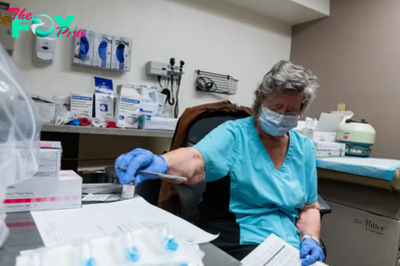Health
Colorado leaders launch website this week to help improve the state’s mental health system
Southern and eastern Coloradans accessed behavioral health care services more often than people in any other regions in the state last year and may become a focus for state leaders working to improve the mental health system.
The new data was published this week when the Colorado Behavioral Health Administration launched an online portal that aims to increase transparency and accountability and help the administration offer better care to Coloradans who need it during the coming years.
So far, the administration’s Performance Hub has data showing who is accessing services statewide and information about how to file complaints about providers licensed by the agency.
☀️ READ MORE
Plan to drill 155 oil and gas wells near Lowry landfill in Aurora gets endorsement of top regulator
Where does the Supreme Court leave Colorado’s key environment questions?
How a cellphone is helping water finally get to South St. Vrain Creek
Over time, more data will be added to help identify gaps in care, make systemic improvements and address health care inequities, administration leaders said earlier this week.
“When it comes to transforming behavioral Health, we and all of our partners across the state have to know where we’re at to know where we must go to improve behavioral Health care — and the Performance Hub is an important tool at the BHA to increase visibility and understanding of behavioral Health care in Colorado,” said Christen Lara, division director of Technology and data at the Behavioral Health Administration.
“It provides information for people to learn what mental health and substance use disorder access looks like statewide, how it varies in different counties over time and how that changes based on the age of people receiving services — to see if the direction we’re headed in is where we want to go as a state or if it’s signaling that we need to make policy changes at the local, state or federal level.”
The Behavioral Health Administration was launched two years ago, when the state and the country were managing a growing mental health crisis that began during the pandemic.
The aim was to ensure all Coloradans have access to quality mental health and substance use disorder services, regardless of where they live, or their ability to pay, while also reducing stigma, so that people feel comfortable seeking support and treatment, among many other things.
The law that created the administration required it to establish a monitoring system, on or before July 1, to track capacity of such services and performance of all behavioral health providers and inform needed changes within the system.
The law requires the administration to set minimum standards for treatment such as by making rules about the availability and timeliness of behavioral health care services.
The measure also requires the administration to publish accountability reports and other data on its website.
The data
The Performance Hub currently includes information about the number of people who have received publicly funded community mental health services in each county per year, the number of residential beds for substance use disorder treatment in Colorado by county and the number of complaints made to the administration annually about behavioral health services.
More than 112,000 people received care at community-based mental health centers or specialty clinics statewide in 2023 and just over 51,000 Coloradans got substance use disorder services that were funded by the Behavioral Health Administration.

The San Luis Valley and several counties in eastern Colorado were among those with the highest numbers of residents who received publicly funded community mental health services in 2023.
Lake and Logan counties and several counties in southern Colorado were among those that had the highest numbers of residents who received addiction services funded by or overseen by the administration last year.
The state may need to increase the number of residential beds available for people with substance use disorders living in rural areas, according to the preliminary data.
On average, 397 beds were available at residential treatment facilities for people with substance use disorders from July 2023 through April.
However, 50 out of 64 counties have no beds available for people with substance use disorders.
Most beds are clustered in Arapahoe, Denver, Douglas, Elbert, Jefferson and Weld counties, with some available in Pueblo, Baca, Bent and Las Animas counties. Mesa County is the only place on the Western Slope where there are beds at residential treatment facilities for people with addiction.
-

 Health1d ago
Health1d agoTeens Are Stuck on Their Screens. Here’s How to Protect Them
-

 Health1d ago
Health1d agoHow Pulmonary Rehab Can Help Improve Asthma Symptoms
-

 Health1d ago
Health1d ago10 Things to Say When Someone Asks Why You’re Still Single
-

 Health2d ago
Health2d agoThe Surprising Benefits of Talking Out Loud to Yourself
-

 Health3d ago
Health3d agoDoctor’s bills often come with sticker shock for patients − but health insurance could be reinvented to provide costs upfront
-

 Health3d ago
Health3d agoWhat an HPV Diagnosis Really Means
-

 Health3d ago
Health3d agoThere’s an E. Coli Outbreak in Organic Carrots
-

 Health4d ago
Health4d agoCOVID-19’s Surprising Effect on Cancer



























